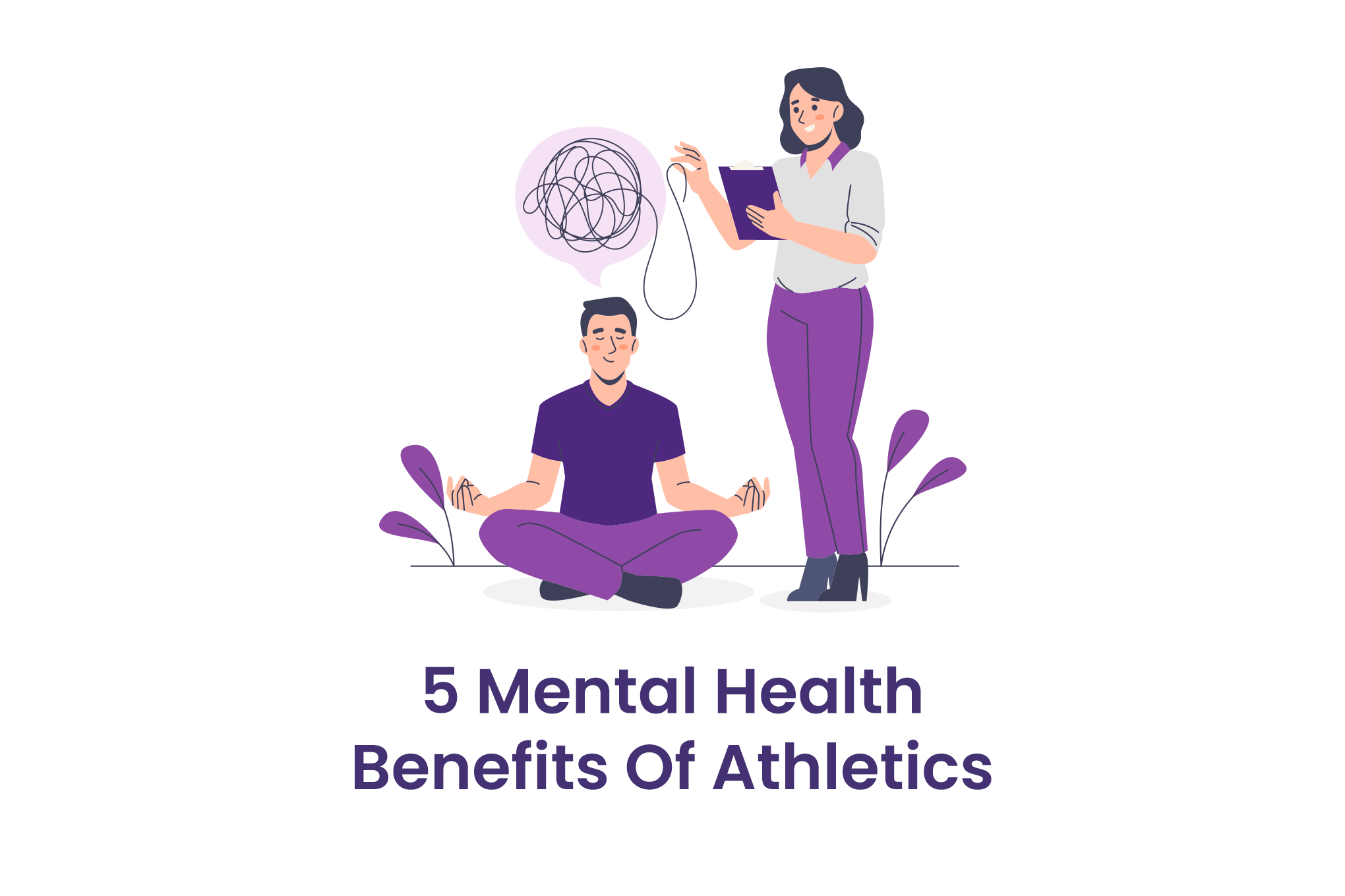You already staying active is healthy for the body. You might be unaware that it may also boost your mood, improve your quality of life, and help you deal with depressive symptoms as well as anxiety. Moreover, staying active and participating in athletics have so many other benefits as well. To know more, keep scrolling!
The Mental Health Benefits Of Athletics
Workout isn’t simply about improving your aerobic capacity and building your muscles. Physical activity may enhance your overall health and appearance, reduce your waistline and improve a variety of aspects of your sexual life, as well as add years to your life span.
Fitness enthusiasts have more energy during the day, sleep better at night, have clearer memory, and are generally happier with their lives and themselves as a result of their frequent workouts. It is also a good therapy for many common mental health challenges.
It moreover relieves stress, improves concentration, promotes relaxation, and boosts your overall mood. It doesn’t matter how old or fit you are, exercise can help you deal with mental health issues and get more out of life in general.
Other mental health benefits of exercise
Even if you’re not suffering from any mental health issues, regular physical activity can still offer a fresh boost to your mood, outlook, and mental well-being.
Exercising Can Help With the following:
- A sharper mind and memory. Aside from feeling better, endorphins encourage the development of new brain cells and help delay the aging process.
- Increased self-esteem. Regular activity is a way to invest in your psyche, body, and soul. Your self-esteem may very well be enhanced and your self-confidence elevates when it becomes a habit. Achieving even minor fitness objectives will make you feel better about yourself.
- A better night’s rest. Getting some exercise in the morning or afternoon, even if it’s only for a few minutes, might help you sleep better. Restorative exercises such as yoga or moderate stretching might help you sleep better at night.
- Increased energy. Try to exercise for a few minutes daily at first. As you feel more motivated, you may increase your workout time.
- A higher resilience. Resilience and coping skills can be improved via exercise. Regular physical activity also helps strengthen the immune system and minimize the impact of stress.
How To Overcome Workout Fatigue And Make It A Habit
Sometimes taking the initial step might be difficult, even if it’s something you know would help you feel better. Exercising may be difficult, especially if you’re simultaneously dealing with mental health conditions.
The following are some of the most prevalent hurdles and ways to overcome them.
Over Exhaustion
Workouts appear to make you feel worse when you’re fatigued, sad, or under stress. Physical activity, on the other hand, is a potent energy booster. As a result of regular exercise, tiredness is reduced and energy levels are boosted. Take a 5-minute stroll if you’re highly fatigued. As soon as you start walking, you’ll likely have more energy and be able to walk for longer periods of time.
Overwhelmed For Working Out
No matter how inactive you are, you can still find ways to start moving. Just a few minutes a day of easy, low-impact exercises, such as walking or dancing, will help you get started.
A Hopeless Feeling
Even if you’ve never exercised before, you can still find ways to comfortably get active. Start slow with easy, low-impact activities for a few minutes each day, such as walking or dancing.
Not Feeling Good About Your Body
Are you your own critic? Give your body a fresh perspective. No matter what your weight, age, or fitness level is, you’re not alone. Even achieving the simplest fitness objectives can help you enhance your self-esteem and that self-esteem will help you gain body confidence.
Feeling Pain Or Discomfort
Have a conversation with your doctor if you have a serious weight problem or any disease that affects your movement. If it helps, break up your workout into smaller, more frequent sessions.
No matter how bad your mental health and fitness level is, there is always a chance to take a fresh start. Take a wall whenever you feel down and eventually it will become your habit. Consequently, this habit will lead you toward a fit and healthy lifestyle. What are you waiting for then? Let’s take a walk!




